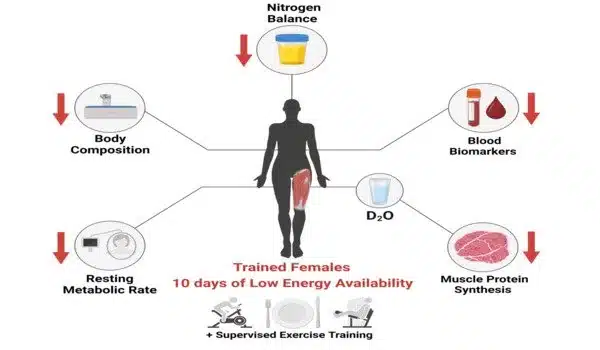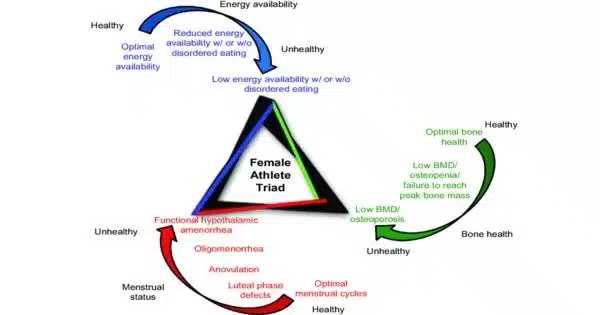Inadequate energy intake can have serious consequences for female athletes’ health and performance. If you want to achieve the best results, you must combine diet and exercise. Most athletes are aware of this, and many closely monitor their energy intake and training. A new study, however, shows that female athletes’ bodies are negatively affected when they consume too little energy through their diet in comparison to their training volume.
According to a new study from Aarhus University, when female athletes reduce their energy intake while increasing their training, their health and the ability of their muscles to respond to training suffer.
If you want to achieve the best results, you must combine diet and exercise. Most athletes are aware of this, and many closely monitor their energy intake and training. According to PhD student Mikkel Oxfeldt, a new study from Aarhus University’s Department of Public Health shows that female athletes’ bodies are negatively affected when they consume too little energy through their diet in comparison to their training volume. The research is being conducted by him and Associate Professor Mette Hansen.
Under the researchers’ supervision, the participants completed individual training programmes aimed at increasing muscle mass, strength, and overall fitness. We also provided meals for the women. We were able to see how much energy they expended and what they ate during the study by controlling their training regimen and diets.
Mikkel Oxfeldt
“We know that both elite female athletes and active women, consciously or unconsciously, do not always have an energy intake that matches their energy expenditure when training.” According to the findings, inadequate energy intake can impair muscles’ ability to respond to training. After only ten days of low energy intake, we began to notice changes in the hormonal system, such as a decrease in metabolic hormone followed by a decrease in metabolism.”
According to the findings, it is critical for women to avoid drastically reducing their energy intake. According to Mikkel Oxfeldt, if they increase their training volume, they should actually increase their energy intake:
“When you don’t get enough energy from your diet, your body will begun to pare down processes that require a lot of energy, just like a mobile phone that goes into battery-saving mode. We know from previous studies that it can cause some women’s periods to stop. However, our results show that other processes in the body, such as building new muscle proteins, are also affected.”

We must confront the unilateral focus on weight
Thirty fit women aged 18-30 took part in the study, which is part of the Novo Nordic-funded Team Denmark network called “competition preparation and training optimisation.” All of the women began the study immediately after the start of their menstrual period and followed a strict training and diet regimen for three weeks.
“Under the researchers’ supervision, the participants completed individual training programmes aimed at increasing muscle mass, strength, and overall fitness. We also provided meals for the women. We were able to see how much energy they expended and what they ate during the study by controlling their training regimen and diets,” says Mikkel Oxfeldt, who goes on to say:
“This is the first time that such a well-controlled study has been carried out in this area, where both the diet and training of a group of fit women has been regulated to this extent. During the study, all participants drank doubly labelled water, which is enriched with a trace material. When we combine this tracer technique with the retrieval and subsequent analysis of muscle tissue samples, we can gain detailed insight into the muscles’ response to the experimental protocol,” explains Mikkel Oxfeldt.
Mikkel and the research team believe it is critical to challenge the notion that losing weight leads to medals when, in fact, losing weight can negatively impact a number of the body’s systems, including muscles.
“We’ve heard about public weigh-ins in some elite sports in recent years.” They contribute to a culture in which some women are constantly trying to lose weight. However, our findings show that this emphasis on weight loss can have both short and potentially long-term negative consequences for women’s health and training results. The study should give athletes and coaches a more nuanced picture of potential side effects.”














